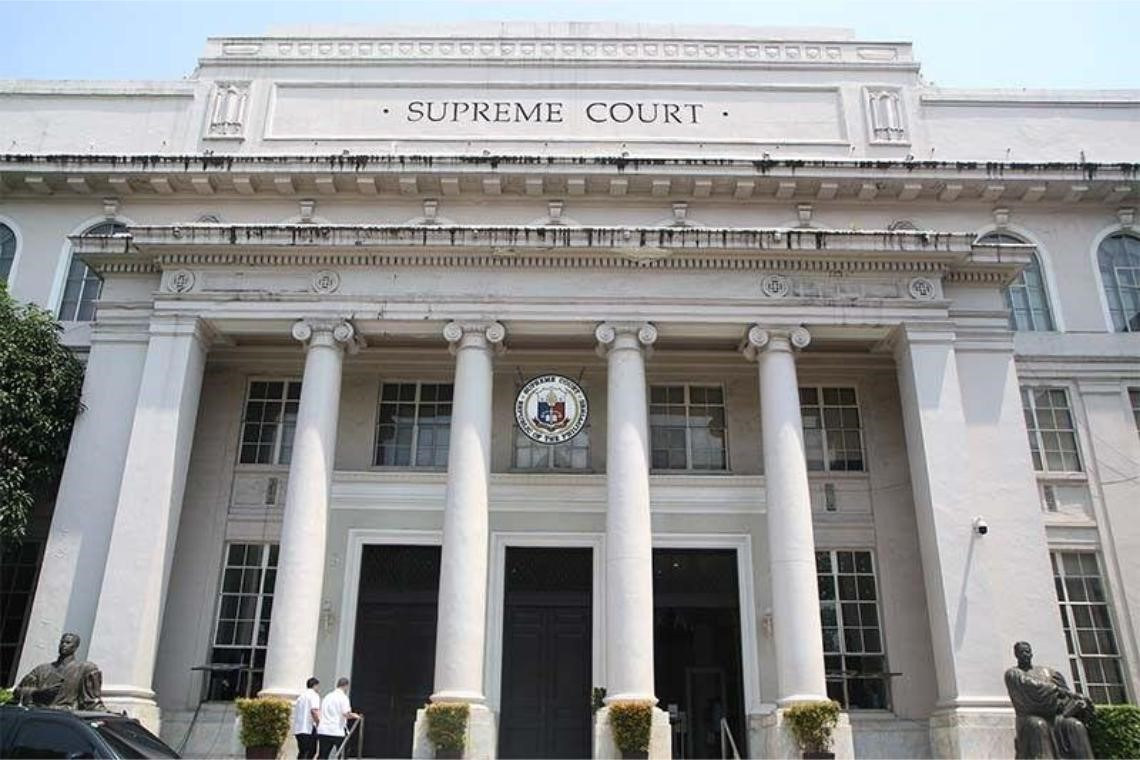The Philippines Supreme Court has played a significant role ahead of the first BARMM elections. The Court ruled that Sulu could not be included in the autonomous region on September 2024. More recently in September 2025, the Court granted a TRO on the redistribution of Sulu’s seats in the BARMM, before ordering the postponement of the election on September 30th. Image Source: Philstar
The Supreme Court of the Philippines has ruled that no parliamentary elections can be held in the Bangsamoro Autonomous Region in Muslim Mindanao (BARMM) on October 13, 2025.
The decision, released on October 1, declared Bangsamoro Autonomy Acts 58 and 77 unconstitutional, effectively postponing what would have been BARMM’s first parliamentary elections.
Following the ruling, the Supreme Court instructed the Commission on Elections (Comelec) to continue preparations and to hold the regional elections no later than March 31, 2026. Simultaneously, the Bangsamoro Transition Authority (BTA) was ordered to finalize the allocation of district parliamentary seats by October 30, 2025. This tight timeline has left both national and regional institutions scrambling to adjust to the new schedule.
The cost of the postponement is substantial. Comelec Chairperson George Erwin Garcia reported that over ₱500 million had already been spent on printing 2.3 million ballots for the now-cancelled October elections. With additional spending on election equipment, materials, and logistics, total expenses exceeded ₱1 billion—funds that may largely go to waste.
The cost of the postponement is substantial with estimates exceeding ₱1 billion.
The police had also been actively preparing to ensure safe elections on October 13th, efforts that will have to be tabled till the following year. The delay has even led to the sudden lifting of a ban on the carrying of firearms across the BARMM intended to improve security ahead of the elections.
In the meantime, the Comelec is exploring other options. Spokesperson John Rex Laudiangco said manual voting is being considered as a contingency in order to meet the March deadline. However, this approach brings its own challenges, including logistical strain and risks to public confidence. Each delay or change in method could further erode trust in the credibility of the BARMM’s long-awaited democratic process.
✉ Get the latest from KnowSulu
Updated headlines for free, straight to your inbox—no noise, just facts.
We collect your email only to send you updates. No third-party access. Ever. Your privacy matters. Read our Privacy Policy for full details.
The root of the disruption lies in a temporary restraining order issued by the Supreme Court on September 15. The order suspended a regional measure that had redrawn the region’s parliamentary districts and reassigned seven seats previously designated for Sulu. Petitioners challenging the law argued that altering districts so close to an election violated constitutional protections. The Philippine Constitution prohibits changes to electoral districts within a certain period before a vote, a safeguard meant to ensure stability and fairness in the electoral process.
Petitioners challenging the reallocation of Sulu seats argued that altering districts so close to an election violated constitutional protections.
The Supreme Court’s position has been backed by the Presidential Office, which emphasized that the decision is a critical step toward ensuring the legality and integrity of the region’s first parliamentary elections.
Sulu had previously been incorporated into BARMM despite a 2019 plebiscite in which the majority of its residents voted against joining the autonomous region. Since then, Sulu has been undergoing a transition out of BARMM, with President Ferdinand Marcos Jr formally assigning it to Region IX, or the Zamboanga Peninsula.
Despite this departure, BARMM has remained open to Sulu’s return. Regional officials have reiterated their willingness to welcome Sulu back should the province choose to rejoin. In the meantime, BARMM and Sulu officials remain focused on the challenges of delivering on previously approved development initiatives—such as the delivery of medical supplies—and the ongoing efforts to ensure stability and opportunity for Sulu during the transition.
BARMM and Sulu officials remain focused on the challenges of delivering on previously approved development initiatives.
Ultimately, the BARMM was established to provide greater political representation for the Moro population and to support long-term peace and development in Mindanao. The legal and administrative setbacks leading up to the delayed BARMM elections reflect broader challenges in implementing a transition of this scale.
Attention will remain on how the Bangsamoro Transition Authority and the Commission on Elections moves forward the election, a political process that must continue to hold the attention of all the Philippines.
REFERENCES
Francisquete, D. E. M. (2025, October 6). ₱1.2B lost as SC delays BARMM polls: Comelec. SunStar. https://www.sunstar.com.ph
Gita-Carlos, R. A. (2025, October 1). SC halts BARMM polls over invalid districting law. Philippine News Agency. https://www.pna.gov.ph
Gozum, I. (2025, September 16). Supreme Court issues TRO on redistricting for 2025 BARMM elections. Rappler. https://www.rappler.com
Patinio, F. (2025, October 4). Comelec lifts BARMM gun ban after SC postpones polls. Philippine News Agency. https://www.pna.gov.ph



